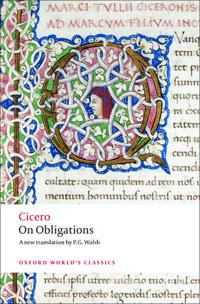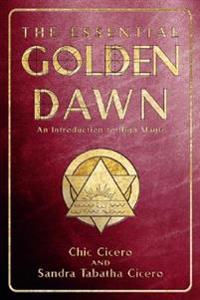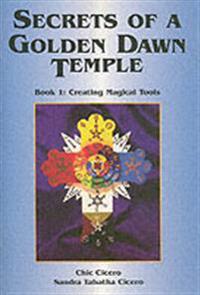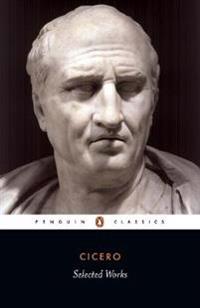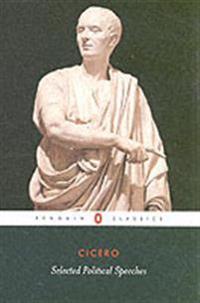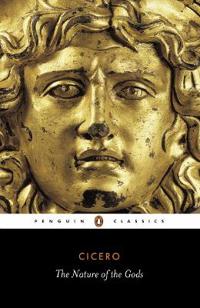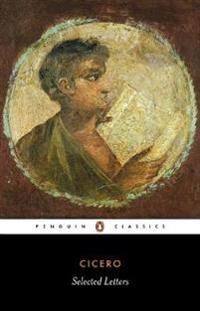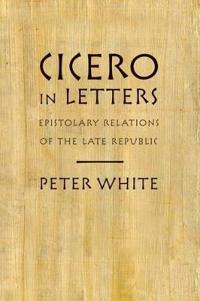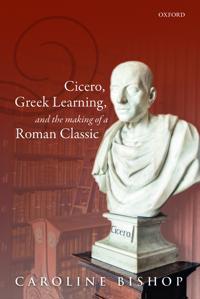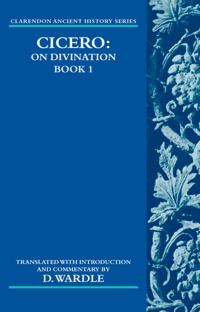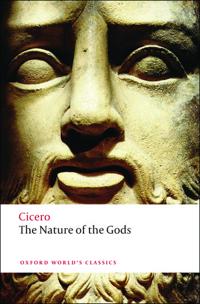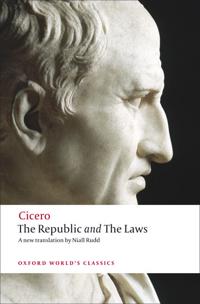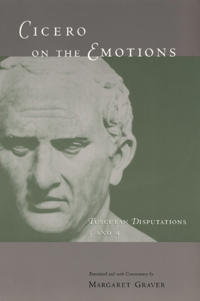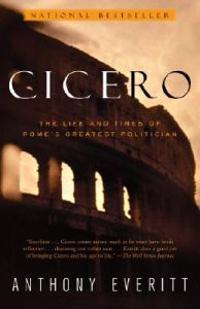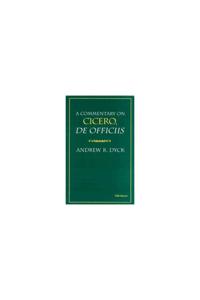On Obligations (Pocket)
avMarcus Tullius Cicero, P. G. Walsh, Marcus Tullius Cicero
ISBN: 9780199540716 - UTGIVEN: 200807On Obligations (De officiis) was written by Cicero in late 44 BC after the assassination of Julius Caesar to provide principles of behaviour for aspiring politicians. It explores the apparent tensions between honourable conduct and expediency in public life, and the right and wrong ways of attaining[...]
The Essential Golden Dawn (Häftad)
avChic Cicero, Tabitha Cicero
ISBN: 9780738703107 - UTGIVEN: 200304Today the Golden Dawn is one of the most sought-after and respected systems of magic in the world. Over a century old, it is considered the capstone of the Western Esoteric Tradition. Yet many of the available books on the subject are too complex or overwhelming for readers just beginning to explore[...]
Golden Dawn Magical Tarot (Övrigt)
avChic Cicero, Sandra Tabatha Cicero
ISBN: 9780738723396 - UTGIVEN: 201010Enrich your life, attain higher consciousness, and realize your true potential through "Golden Dawn Magical Tarot" - now back in print after ten years. Upon the request of Israel Regardie, this powerful and authentic tarot - rooted in the wisdom and tradition of the Hermetic Order of the Golden Dawn[...]
Gold (Pocket)
avIsrael Regardie, Chic Cicero, Sandra Tabatha Cicero
ISBN: 9780738740720 - UTGIVEN: 2015-04In this newly rediscovered text, famed occultist Israel Regardie sheds light on the psychological and spiritual meaning behind the symbols and metaphors of alchemy. Fully edited and annotated by Chic and Sandra Tabatha Cicero, Gold is the first new book by Regardie published in decades. Analyzing Th[...]
Pro Archia Poeta Oratio (Pocket)
avMarcus Tullius Cicero, Steven M. Cerutti, Marcus Tullius Cicero
ISBN: 9780865164390 - UTGIVEN: 1999-01Secrets of a Golden Dawn Temple, Book I: Creating Magical Tools (Häftad)
avChic Cicero, Sandra Tabatha Cicero
ISBN: 9781870450645 - UTGIVEN: 200401A hands-on manual for building a complete Golden Dawn Temple and understanding its Symbolism.
Selected Works (Storpocket)
avMarcus Tullius Cicero
ISBN: 9780140440997 - UTGIVEN: 197404Collecting the most incisive and influential writings of one of Rome's finest orators, Cicero's "Selected Works" is translated with an introduction by Michael Grant in "Penguin Classics". Lawyer, philosopher, statesman and defender of Rome's Republic, Cicero was a master of eloquence, and his pure l[...]
Selected Political Speeches (Storpocket)
avMarcus Tullius Cicero
ISBN: 9780140442144 - UTGIVEN: 197304Amid the corruption and power struggles of the collapse of the Roman Republic, Cicero (106-43BC) produced some of the most stirring and eloquent speeches in history. A statesman and lawyer, he was one of the only outsiders to penetrate the aristocratic circles that controlled the Roman state, and be[...]
On the Good Life (Pocket)
avCicero, Marcus Tullius
ISBN: 9780140442441 - UTGIVEN: 1979-11-22This volume brings together Cicero's tentative and undogmatic reflections on the good life, in which he discusses duty, friendship, the training of a statesman, and the importance of moral integrity in the search for happiness.[...]
The Nature of the Gods (Storpocket)
avMarcus Tullius Cicero
ISBN: 9780140442656 - UTGIVEN: 197808Towards the end of his life, Cicero turned away from his oratorical and political career and looked instead to matters of philosophy and religion. The dialogue The Nature of the Gods both explores his own views on these subjects, as a monotheist and member of the Academic School, and considers the o[...]
Selected Letters (Storpocket)
avMarcus Tullius Cicero
ISBN: 9780140444582 - UTGIVEN: 1986-09The greatest orator in Roman history, Marcus Tullius Cicero remained one of the republic's chief supporters throughout his life, guided by profound political beliefs that illuminated his correspondence with both close friends and powerful aristocrats. A chronicle of a crumbling civilization during t[...]
An Attack on an Enemy of Freedom (Pocket)
avMarcus Cicero
ISBN: 9780141023830 - UTGIVEN: 200508Throughout history, some books have changed the world. They have transformed the way we see ourselves - and each other. They have inspired debate, dissent, war and revolution. They have enlightened, outraged, provoked and comforted. They have enriched lives - and destroyed them. Now Penguin brings y[...]
Cicero in Letters (Inbunden)
avPeter White
ISBN: 9780195388510 - UTGIVEN: 2010-08Cicero in Letters is a guide to the first extensive correspondence that survives from the Greco-Roman world. The more than eight hundred letters of Cicero that are its core provided literary models for subsequent letter writers from Pliny to Petrarch to Samuel Johnson and beyond. The collection also[...]
Nature of the Gods, The (Inbunden)
avMarcus Tullius Cicero
ISBN: 9780198150404 - UTGIVEN: 1997-02-13Cicero, Greek Learning, and the Making of a Roman Classic
ISBN: 9780198829423 - UTGIVEN: 2019-01The Roman statesman, orator, and author Marcus Tullius Cicero is the embodiment of a classic: his works have been read continuously from antiquity to the present, his style is considered the model for classical Latin, and his influence on Western ideas about the value of humanistic pursuits is both [...]
Cicero as Evidence: A Historian's Companion (Inbunden)
avAndrew William Lintott
ISBN: 9780199216444 - UTGIVEN: 2008-02-07Asconius: Commentaries on Speeches of Cicero (Pocket)
avAsconius, R. G. Lewis
ISBN: 9780199290536 - UTGIVEN: 2006-12-14Cicero on Divination
ISBN: 9780199297924 - UTGIVEN: 2007-02In the two Books ofDe divinatione Cicero considers beliefs concerning fate and the possibility of prediction: in the first book he puts the (principally Stoic) case for them in the mouth of his brother Quintus; in the second, speaking in his own person, he argues against them. In this new translati[...]
The Nature of the Gods (Häftad)
avMarcus Tullius Cicero
ISBN: 9780199540068 - UTGIVEN: 200806'My present intention is to clear myself of any suspicion of partiality by presenting the views of the generality of philosophers concerning the nature of the gods.' Cicero's philosophical works are now exciting renewed interest, in part because he provides vital evidence of the views of the (largel[...]
The Republic and the Laws (Pocket)
avMarcus Tullius Cicero, Niall Rudd, Jonathan Powell
ISBN: 9780199540112 - UTGIVEN: 200907'However one defines Man, the same definition applies to us all. This is sufficient proof that there is no essential difference within mankind.' (Laws l.29-30) Cicero's The Republic is an impassioned plea for responsible governement written just before the civil war that ended the Roman Republic in [...]
Cicero on the Emotions
ISBN: 9780226305783 - UTGIVEN: 2002-02The third and fourth books of Cicero's "Tusculan Disputations" deal with the nature and management of human emotion: first grief, then the emotions in general. Cicero presents the insights of Greek philosophers on the subject, reporting the views of Epicurians and Peripatetics and giving a detailed [...]
Cicero (Pocket)
avAnthony Everitt
ISBN: 9780375758959 - UTGIVEN: 200305A lively portrait of the quintessential Roman politician describes the life and times of the ancient statesman, based on the witty and candid letters that Cicero wrote to his friend Atticus in which he described the events and personalities that shaped the final days of Republican Rome. Reprint. 50,[...]
Laboratory Experiments in College Physics, 7th Edition (Häftad)
avCicero H. Bernard
ISBN: 9780471002512 - UTGIVEN: 1994-12-31A Commentary on Cicero, De Officiis
ISBN: 9780472107193 - UTGIVEN: 1997-01The first English commentary on de Officiis in a century

